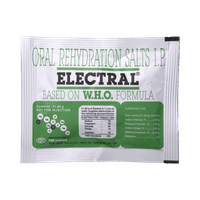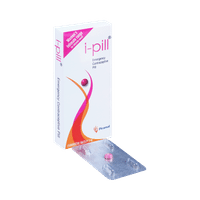food interaction for Axocobal NP
alcohol interaction for Axocobal NP
pregnancy interaction for Axocobal NP
lactation interaction for Axocobal NP
food
alcohol
pregnancy
lactation
Axocobal NP Tablet SR may be taken with or without food, but it is better to take it at a fixed time.
None
None
CAUTION
Axocobal NP Tablet SR may cause excessive drowsiness with alcohol.
UNSAFE
Axocobal NP Tablet SR may be unsafe to use during pregnancy. Although there are limited studies in humans, animal studies have shown harmful effects on the developing baby. Your doctor will weigh the benefits and any potential risks before prescribing it to you. Please consult your doctor.
CONSULT YOUR DOCTOR
Axocobal NP Tablet SR is probably unsafe to use during breastfeeding. Limited human data suggests that the drug may pass into the breastmilk and harm the baby.
CONSULT YOUR DOCTOR
SALT INFORMATION FOR Axocobal NP
Pregabalin(75mg)
Uses
How it works
Pregabalin is an antiepileptic medication. When given for epilepsy, it is believed to work by reducing the abnormal electrical activity in the brain, thus preventing seizures. It is also used to treat nerve pain where it blocks pain by interfering with pain signals travelling through the damaged nerves and the brain. For treatment of anxiety, it is believed to work by stopping the release of certain chemical messengers (neurotransmitters) that make you feel anxious.
Common side effects
Sleepiness, Weight gain, Dryness in mouth, Blurred vision, Dizziness, Headache, Peripheral edema, Fluctuating blood pressure, Hypoglycemia (low blood glucose level), Gastrointestinal intolerance, Low blood platelets, Abnormal gait, Joint pain, Visual disturbance, Nasopharyngitis (inflammation of the throat and nasal passages), Bronchitis (inflammation of the airways), Anaphylactic reaction, Abnormal ECG, Stevens-Johnson syndrome, Heart failure, Blood cell abnormalities, Increased creatine phosphokinase (CPK) level in blood, Infection, Gastrointestinal disturbance
Nortriptyline(10mg)
Uses
Nortriptyline is used in the treatment of depression and bed-wetting. It is used in patients intolerant of or unresponsive to alternative treatment options for depression.
How it works
Nortriptyline is a tricyclic antidepressant. It increases the levels of chemical messengers in the brain that help in regulating the mood and treat depression.
Common side effects
Weight gain, Orthostatic hypotension (sudden lowering of blood pressure on standing), Dryness in mouth, Constipation, Convulsion, Decreased libido, Vomiting, Nausea, Agitation, Fatigue, Confusion, Dilatation of pupil, Tremors, Taste change, Paresthesia (tingling or pricking sensation), Abnormality of voluntary movements, Headache, Loss of accommodation, Palpitations, Atrioventricular block, Nasal congestion (stuffy nose), Erectile dysfunction, Abnormal ECG, Hypomania, Insomnia (difficulty in sleeping), Ringing in ear, Diarrhea, Rash, Urticaria, Facial swelling, Bone marrow depression, Akathisia (inability to stay still), Involuntary muscle movement
Methylcobalamin(1500mcg)
Uses
Methylcobalamin is used in vitamin B12 deficiency.
How it works
Methylcobalamin is a form of vitamin B12 that restores its level in the body thereby helping in treating certain anemias and nerve problems.
Common side effects
Decreased appetite, Diarrhea, Nausea, Rash
SUBSTITUTES FOR Axocobal NP
133 Substitutes
133 Substitutes
Sorted By
 Rs. 270pay 44% more per Tablet SR
Rs. 270pay 44% more per Tablet SR Rs. 196.90pay 4% more per Tablet SR
Rs. 196.90pay 4% more per Tablet SR Rs. 249pay 32% more per Tablet SR
Rs. 249pay 32% more per Tablet SR Rs. 169save 10% more per Tablet SR
Rs. 169save 10% more per Tablet SR Rs. 180save 4% more per Tablet SR
Rs. 180save 4% more per Tablet SR
Expert advice FOR Axocobal NP
- Pregabalin should be taken as per the dose and duration prescribed by your doctor.
- It may cause sleepiness. Do not drive or do anything requiring concentration until you know how it affects you.
- It may cause blurring or loss of vision. Inform your doctor immediately if you notice any vision changes.
- Inform your doctor if you develop any unusual changes in mood or behavior, new or worsening depression, or suicidal thoughts or behavior.
- Do not stop taking the medication suddenly without talking to your doctor as it may worsen your underlying condition.
Frequently asked questions FOR Axocobal NP
Pregabalin
Q. What is Pregabalin and what is it used for?
Pregabalin belongs to the anticonvulsants class of medicines. It is used to treat seizures. It is also helpful in treating nerve pain (neuropathic pain) which could be due to diabetes, shingles, or injury. It is also used in fibromyalgia (a long-lasting condition that may cause pain, tiredness, muscle stiffness and tenderness as well as difficulty falling or staying asleep. In some cases, your doctor may prescribe this medicine for the treatment of anxiety.
Q. Pregabalin has varied roles. Does it work in the same way for each disease?
No, Pregabalin works in different ways for different diseases. In epilepsy, it stops seizures by reducing the abnormal electrical activity in the brain. In chronic pain, it blocks pain messages travelling from brain to spine.
Q. I have been prescribed Pregabalin for pain due to shingles. When can I expect relief from pain?
It may take a few weeks to see full benefits while taking Pregabalin. However, people have experienced relief from pain after a week of starting Pregabalin.
Nortriptyline
Q. What is Nortriptyline used for?
Nortriptyline is used to treat depression and nocturnal (night time) bedwetting in children. It restores the chemical imbalance in the brain and enhances mood and behavior. In some cases, it may also be prescribed to relieve neuropathic (nerve) pain.
Q. Can I take Nortriptyline for nerve pain? How do I know if I have nerve pain?
Yes, Nortriptyline can be taken for nerve pain. Your doctor may prescribe this medicine in combination with gabapentin. Nerve pain (or neuropathic pain) is commonly described as a shooting, burning or stabbing type of pain that may be associated with tingling, numbness or a pin and needles like feeling. The pain may be spontaneous which means it may be triggered without the presence of any stimulating factor. Additionally, you may experience an increase in the sensitivity to touch. Consult your doctor if you experience such pain.
Q. What are the side effects of Nortriptyline?
The side effects of Nortriptyline are increased heart rate, weight gain, difficulty in urination, orthostatic hypotension (sudden decrease in blood pressure on standing), dryness in mouth and constipation. Please consult your doctor if these side effects do not go away or worry you.
Methylcobalamin
Q. What is Methylcobalamin?
Methylcobalamin contains vitamin B12. Vitamin B12 is an essential nutrient which is required by the body to make red blood cells and maintain a healthy nervous system. It is also important for releasing energy from food and using vitamin B11 (folic acid).
Q. Why can’t I get sufficient vitamin B12 from my diet?
You can get vitamin B12 from sources like meat, fish, eggs and dairy products. While people who are vegetarian or vegan may not get Vitamin B12 as it is not found naturally in foods such as fruits, vegetables and grains. Therefore, deficiency of Vitamin B12 is usually noticed in vegetarians or vegans.
Q. What happens if I have vitamin B12 deficiency?
Deficiency of vitamin B12 may cause tiredness, weakness, constipation, loss of appetite, weight loss and megaloblastic anemia (a condition when red blood cells become larger in size than normal). It may also lead to nerve problems such as numbness and tingling in the hands and feet. Other symptoms of vitamin B12 deficiency may include problems with balance, depression, confusion, dementia, poor memory and soreness of the mouth or tongue.






















